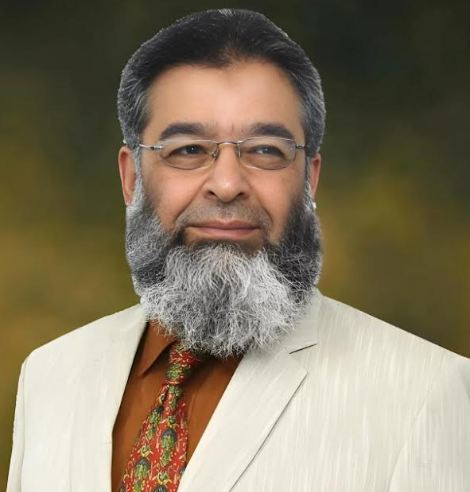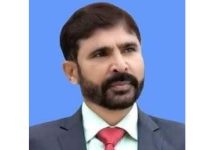By Muhammad Mohsin Iqbal
In Pakistan’s parliamentary democracy, dialogue between the government and opposition plays a pivotal role in ensuring political stability and the smooth functioning of democratic institutions. The country’s diverse social, ethnic, and political landscape makes such dialogue essential for bridging divides and promoting inclusive decision-making. Historically, the absence of effective communication between opposing sides has led to political impasses, destabilized governments, and hindered national progress. Constructive dialogue provides a platform to resolve contentious issues such as electoral reforms, economic policies, and constitutional amendments through mutual understanding and compromise. Furthermore, it addresses the grievances of marginalized groups and smaller political entities, ensuring governance reflects the aspirations of all citizens.
Pakistan’s political history has often been marked by polarization and mistrust, further underscoring the significance of dialogue. Instances like the Charter of Democracy signed on May 14, 2006, demonstrate how meaningful engagement can pave the way for institutional reforms and political stability. Conversely, failures in dialogue, as witnessed during the political crises of 2014 and 2023, have led to prolonged stalemates, undermining public confidence in democratic processes. Effective dialogue fosters accountability, enabling the opposition to critique government policies constructively while providing the government an opportunity to explain its actions and build consensus. Strengthening Pakistan’s democratic foundations requires prioritizing dialogue to address challenges, promote national unity, and uphold parliamentary democracy.
Since Pakistan’s inception in 1947, the relationship between the government and opposition has frequently been characterized by mistrust and conflict. This lack of a cooperative political culture has historically hindered efforts at dialogue, resulting in missed opportunities for national consensus. Dialogues have ranged from constitutional agreements to attempts at resolving political crises, yielding varying degrees of success and failure.
In the early years of independence, Pakistan’s nascent political system faced significant challenges, including the struggle to formulate a constitution. Efforts for dialogue were evident during the first Constituent Assembly’s deliberations, but political rivalries and regional differences marred these attempts. The dismissal of Prime Minister Khawaja Nazimuddin’s government on April 17, 1953, set a precedent of political instability, discouraging meaningful engagement between opposing political forces. This early breakdown in dialogue established a pattern of mistrust that persisted for decades.
The political turmoil of the 1970s underscored the necessity of dialogue during one of Pakistan’s most severe crises. After the 1971 secession of East Pakistan, Prime Minister Zulfiqar Ali Bhutto’s government initiated the drafting of the 1973 Constitution, a landmark achievement of consensus politics. However, the political environment soon deteriorated. In 1977, the Pakistan National Alliance (PNA) alleged electoral rigging by Bhutto’s government, leading to widespread protests. Attempts at dialogue between the government and the PNA in June 1977 failed, ultimately paving the way for General Zia-ul-Haq’s martial law.
The return to civilian rule in 1988 marked a period of frequent political dialogues between the Pakistan Peoples Party (PPP) and the Pakistan Muslim League-Nawaz (PML-N), the two dominant political parties. However, these engagements often devolved into personal rivalries, undermining institutional stability. One notable instance was the 1993 dialogue, which resulted in the resignation of both Prime Minister Nawaz Sharif and President Ghulam Ishaq Khan, ending a prolonged standoff. While this resolution underscored the importance of dialogue, it also highlighted the recurring inability of political actors to resolve disputes independently.
The political dynamics of the 2000s were shaped by the return of exiled leaders and the restoration of democratic processes. The 2006 Charter of Democracy, signed by Benazir Bhutto and Nawaz Sharif, symbolized a commitment to democratic norms. Although the charter provided a framework for cooperation, its practical implementation often fell short as both parties prioritized their interests over institutional reforms. Nevertheless, the document remains a reference point for proponents of democratic dialogue in Pakistan.
Meanwhile, Dharna (sit-in) politics emerged as a significant phenomenon in Pakistan’s political landscape, often reflecting a deadlock between the government and opposition. Early instances, such as Qazi Hussain Ahmed’s dharnas in 1993, set a precedent for mass mobilization to challenge government policies. Rooted in ideological opposition to corruption and perceived misgovernance, these protests highlighted the frustration of opposition parties unable to achieve their goals through parliamentary mechanisms. In subsequent years, dharna politics gained prominence with Dr. Tahir-ul-Qadri’s Pakistan Awami Tehreek sit-ins and Imran Khan’s Pakistan Tehreek-e-Insaf (PTI) protests.
Dr. Tahir-ul-Qadri’s 2013 dharna demanded electoral reforms and accountability, while the 2014 PTI sit-in reshaped the political narrative. Lasting 126 days, the PTI sit-in in Islamabad called for an investigation into alleged rigging in the 2013 elections. While these protests demonstrated the power of large-scale mobilizations to disrupt governance and draw national attention, they also deepened political polarization, as seen in the growing mistrust between the PTI and the ruling Pakistan Muslim League-Nawaz (PML-N) during that period. These protests underscored both the strength of democratic expression and the limitations of dialogue and institutional mechanisms in resolving political crises, often pushing disputes from parliamentary halls to the streets.
The political dynamics following the 2018 general elections brought new challenges. The PTI’s ascension to power was met with resistance from opposition parties, which accused the government of political victimization. Deadlocks over issues such as electoral reforms and accountability highlighted the persistent lack of trust. Despite occasional overtures for dialogue, meaningful progress remained elusive.The removal of Imran Khan as Pakistan’s Prime Minister through a no-confidence vote on April 10, 2022, was a historic and polarizing event. While opposition parties hailed it as a victory for democracy, Khan’s supporters protested, claiming it was a foreign conspiracy.
Negotiations began again in earnest in May 2023, mediated by civil society groups and political actors concerned about Pakistan’s stability. Discussions revolved around a roadmap for electoral reforms and a consensus on the timing of the next elections. However, the talks collapsed, over disagreements on key issues, including the composition of the caretaker government. This impasse further polarized the political environment, with both sides accusing each other of insincerity.
Currently, PTI and the government, facilitated by Speaker National Assembly Sardar Ayaz Sadiq, have initiated dialogue to ease political tensions, with the first session held on December 23, 2024. The government has urged PTI to present a formal charter of demands. Both sides recognize the importance of dialogue for political and economic stability, making these talks a pivotal step toward reducing polarization in Pakistan.
Pakistan’s history underscores that constructive dialogue between the government and opposition is not merely an option but a necessity for democratic stability. Moving forward, fostering a culture of dialogue and compromise is essential to bridging political divides and ensuring that the country’s democratic institutions can effectively address the challenges of governance and representation.

















